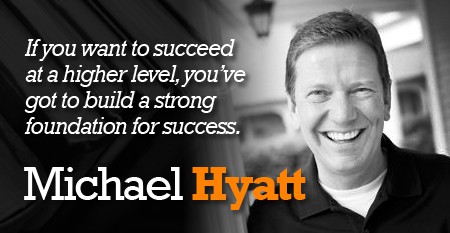So what’s the big deal about personal branding? The mere mention of this topic sparks intense emotions and frothy debate. The legions of personal branding advocates believe it’s the great brand equalizer, and the growing constituency of disgruntled adversaries see it as little more than the latest form of snake-oil. So which is it? The answer is for you to decide…I’ll frame both sides of the argument and let you draw your own conclusions.
I have written often on the subject of personal branding, and some of my practice focuses on shaping the personal brands of executives and entrepreneurs. Needless to say, I’m a huge believer in personal branding. That said, much of my writing sides with the skeptics as I’m not a fan of the type of “instant personal branding” preached by so many these days. If this sounds a bit schizophrenic, it probably is; but stick with me as there is a lot of meat that follows.
Want to build a strong personal brand? Let your actions speak louder than your words. Be the best at what you do, be authentic, be honest, be focused on helping others, and above all else, add value in the performance of your work.
If you focus on making a certainty of execution synonymous with your name, you won’t have to promote yourself as others will do it for you. The strength of personal character and reputation is your personal brand. If you’re good enough, your personal brand will precede you, and you won’t need to shout it from the rooftops.
Let me break it down as simply as I can…There are two types of personal brands:
- The personal brand created by your character, work, and reputation, and;
- The personal brand contrived to make up for a lack of the aforementioned items. The former is a personal brand that is authentic, sustainable, and valuable, while the latter is just hype and spin that will eventually get lost in the noise and be seen for what it is…form over substance.
To be clear, I have nothing against leveraging the positioning and promotion of real talent/ability, or up-and-coming talent/ability, but I have everything against blatant self-promotion by those who pretend to be something they are not. Regrettably, the fake it until you make it crowd is burgeoning at a rapid pace due to personal branding efforts based upon a lack of integrity. If you have to market yourself as a thought leader, then you are NOT. A sustainable brand is far more than a contrivance for personal glorification – it is a reflection of what you do, but more importantly, who you are and what you stand for.
So what’s the big deal you ask? Shouldn’t everyone have the chance to put their stamp on the world? Perhaps, but the problem with glory hounds is that they take opportunities away from those who deserve them, muddy the waters for undiscerning consumers, and serve to create unnecessary havoc in a market, not in need of such distractions.
The reality is that most of us will probably never achieve the status of icons, nor do most of us really aspire to that end. However increasing your personal brand equity is good for adding value to your company’s brand, leveraging your earning power, and improving your job security and/or marketability. Personal branding is far more than an ego-play; it is smart business assuming it is done properly.
The bottom line is that personal brands can not only co-exist quite nicely with corporate brands, but they can add significant value to them. Don’t believe me? Regardless of how you feel about the following list of individuals, you must agree that they have done a remarkable job of building a personal brand that has oftentimes resulted in the creation of modern-day empires. Think of Warren Buffet, Oprah Winfrey, Donald Trump, Bill Gates, Michael Dell, Sam Walton, Ted Turner, Richard Branson, the late Steve Jobs, and a whole host of others, and you’ll quickly see just how powerful a strong personal brand can be. In fact, spend some time browsing through the Forbes 400 and you’ll find that you recognize far more names than not. View a list of the Fortune 500 CEO’s and you’ll be surprised how many of their names have been converted into strong personal brands. Look at the Inc. 500 or Entrepreneur Hot 100 lists and you’ll see a number of strong personal brands in the making.
Unlike the surface level hype put forth by many, if you want to create a strong and authentic personal brand, the following five tips will start you in the right direction:
1. Make those around you successful. While some personal brands are built at the expense of others, or on the backs of others, the most highly regarded personal brands are built on the success they have created for others. Think “selfless” as opposed to “selfish.”
2. Be Trustworthy. Whether intuitively, instinctually, intrinsically, objectively, or subjectively, most people have an initial gut feel as to whether or not an individual is trustworthy. Over time, those initial impressions will either be validated or invalidated based upon actual experience. We all know the difference both in chemistry and in productivity when working with those whom we trust and respect, as opposed to what occurs when working with those whom we don’t.
3. Focus on Performance. If you want to stand apart from the masses, develop a reputation for delivering certainty of execution. Immediately cease and desist from majoring in minors, learn to harness your passion, leverage your resources, be disciplined in your approach, and always focus on performance. Think of any successful leader and you’ll find they consistently get the job done. They accomplish the mission; they find a way to win; they execute. Sadly, all it really takes to stand out in today’s business world is to follow through on your commitments. It doesn’t matter where you went to school, how smart you are, what your title is, or any number of other considerations…if you want to succeed, learn to honor your commitments and execute. It is just not that hard to follow through.
4. Invest in continuing education: Okay, so you already make a great income, run your own (or someone else’s) business, and you’re busy. The sad fact is it’s far easier to reach the C-suite than to remain there. You will only stay in the corner office if you continue to refine and advance your skill sets and competencies. Never sacrifice or forgo learning because you think you don’t have time, or worse because you think you already know it all.
5. Publicly give of your time. Get outside of yourself and lead by example. Get in the flow of relevant discussions, worthy causes, and public communities. Don’t be afraid of social networking, philanthropic endeavors, pro-bono work, and other intrinsically valuable investments of your time.
An authentic personal brand, or carefully crafted facade…the choice is yours. I’m very interested in your thoughts on this subject.







